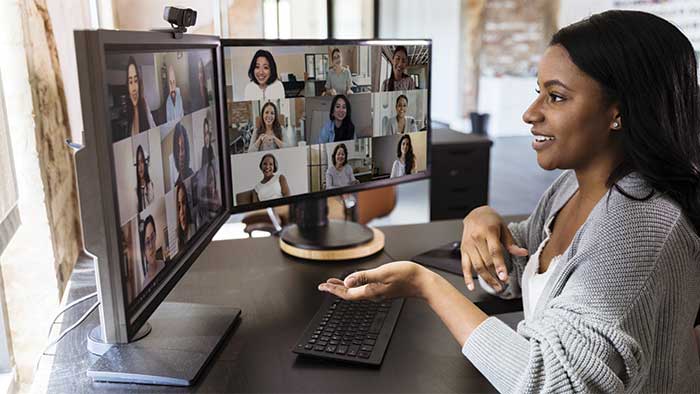RILA’s First Annual Retailer Environmental Roundtable
Meeting Recap
- By [ Molly Auten ]
- 11/30/2021

DAY 1- WEDNESDAY, NOVEMBER 3, 2021
The first day of the Roundtable began with a presentation from Beveridge & Diamond, PC’s Brook Detterman and RILA Senior Vice President of Government Affairs Austen Jensen with updates on retail impact policy areas identified in RILA’s Retail Climate Priorities, federal reconciliation climate action policy, upcoming climate regulatory priorities, and RILA’s climate resources.
KEY TAKEAWAYS
- Priority Climate Change Policies for Retail
- Economy Wide Carbon Pricing
- Transportation: Executive Order on Strengthening American Leadership in Clean Cars and Trucks
- Buildings & Facilities
- Waste
- Agriculture & Forestry
- Key Climate Policy Drivers
- Government Greenhouse Gas (GHG) Emissions Targets
- International Agreements
- Corporate Governance & Disclosure
- Upcoming Climate Regulation
- EPA may shift regulations in the power sector without action from Congress; could reduce the volume of RE/RECs that companies need to purchase to meet voluntary GHG targets and ESG goals
- Transportation mandates regarding cars and trucks; incentives for electrification, electric vehicles, and government spending and procurement; clean truck rules, indirect source rules, and market-based fuel programs in states
- Environmental, Social, and Governance (ESG)and Financial Regulation are areas to watch
Following the breakout sessions, Ashley Bell and Joe Donnelly of UL gave a presentation on how retailers can partner with their suppliers to improve on sustainability goals, reduce hazardous waste, and lower reverse logistics expenses by removing hazardous waste elements in both chemical-containing products and batteries contained in consumer electronics.
KEY TAKEAWAYS
- By the time a product hits the shelf, it’s too late to change its hazardous waste impact
- Understand your waste classifications
- Identify priority hazardous waste products
- Considerations include product weight, return frequency, ability to be reformulated, testing potential, retail focus, waste disposal cost
- Identify chemicals triggering hazardous waste codes
- Work with suppliers to remove hazardous chemicals
- Reformulating considers regulatory implications, sustainability performance, optimizations in product
- Direct collaboration on specific products / categories or through incentive systems to influence change at the supplier level.
DAY 2- THURSDAY, NOVEMBER 4, 2021
Garth Hickle from Signalfire Group, a subsidiary of Resource Recycling Systems, opened Day Two of the Roundtable with an overview of the packaging Extended Producer Responsibility (EPR) legislation recently passed in a couple U.S. states and is gaining traction in others, and highlighted important implementation dates and details.During the following session, Lauren Doroghazi of Multistate highlighted what packaging legislation may come to fruition at the state and federal levels in 2022, and what key elements and trends retailers should look out for.
KEY TAKEAWAYS
- Political Landscape
- By and large environmental issues are partisan issues in the state legislature. Policy proposals addressing plastic bag bans, material bans, packaging EPR, and recycled content mandates are most often part of a Democrat platform.
- Recent elections in Virginia and New Jersey that favored the Republican party may change the way states engage with environmental issues in 2022.
- Oregon EPR
- Producers responsible for: contamination reduction programs, education and outreach resources, waste prevention/reuse grants, rural recycling transportation costs, processor payments, and expanded collection access.
- “Small producers” not required to join a producer responsibility organization (PRO) and may be exempted overall.
- DEQ implementation planning in 2021, law effective in 2022, needs assessment for collection expansion, pilot projects for contamination reduction, and studies for processor fees in 2023, first PRO program plans assessment due in 2024, producers must join a PRO by 2025.
- Maine EPR
- Municipal reimbursement for collection, transportation, and processing costs
- Retailers have no obligations under the act other than for private label brands
- Anticipated adoption of technical rules and provisional adoption of substantive rules in summer 2024, final adoption of substantive rules by summer 2025.
- Other Legislation on the Horizon
- Colorado, Minnesota, Virginia, Connecticut, Rhode Island, and New Hampshire are expected to see EPR legislation in 2022
- Washington, Colorado, and Virginia enacted Polystyrene bans in 2021, and Minnesota is expected to follow in 2022.
- Washington enacted a recycled content mandate in 2021, and Oregon, Maryland, Connecticut, and Vermont are expected to follow in 2022.
The final session of the day was moderated by CHEP’s Dennis Raffa, in which Kate Barry of Chainalytics highlighted what the top trends and movement are within sustainable packaging for retailers, and Ann Meitz from 3M shared how these trends and innovations impact 3M’s Consumer Business.
KEY TAKEAWAYS
- Trends in sustainable packaging
- Increased recycled content
- Advancement of circular materials
- Bio alternatives
- Dissolvable inks and adhesives
- Digital tags
- Breakthroughs
- Advanced barrier coatings
- Monolayer flexibles
- Challenges
- Solutions aren’t widespread
- Cost and development of implementation
- Interest to scale
- Need for development of recycling and industrial composting in the US
- 3M’s Sustainable Packaging Innovations
- Moving to more circular materials
- Removing problematic plastics & adding recycling instructions
- Developing circular consumer packaging options
- Testing novel paper and flexible solutions
MATERIALS
Recordings and slides from the presentations are available on relevant committee and network pages for RILA’s: Sustainability Committee, Environmental Compliance Network, Environmental Advocacy Committee, and Zero Waste Network. Member log-in is required, but RILA members may email Molly Auten to request a link to the recordings.
For information regarding the Environmental Compliance Network or Environmental Advocacy Committee, please contact Susan Kirsch, Vice President, Regulatory Affairs.
For information regarding the Sustainability Committee, please contact Erin Hiatt, Vice President, CSR.
For information regarding the Zero Waste Network, please contact Kaela Martins, Senior Manager, Environmental Programs and Retail Compliance Center.
Tags
-
Climate and Sustainability
-
Ensuring a Safe, Sustainable Future
-
Retail Sustainability
-
Sustainability & Environment
-
Environmental Compliance
-
Legal Affairs & Compliance
-
Retail Compliance Center



